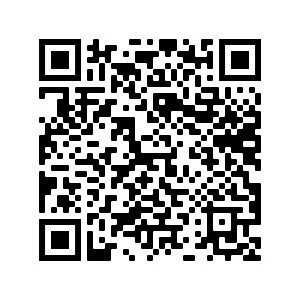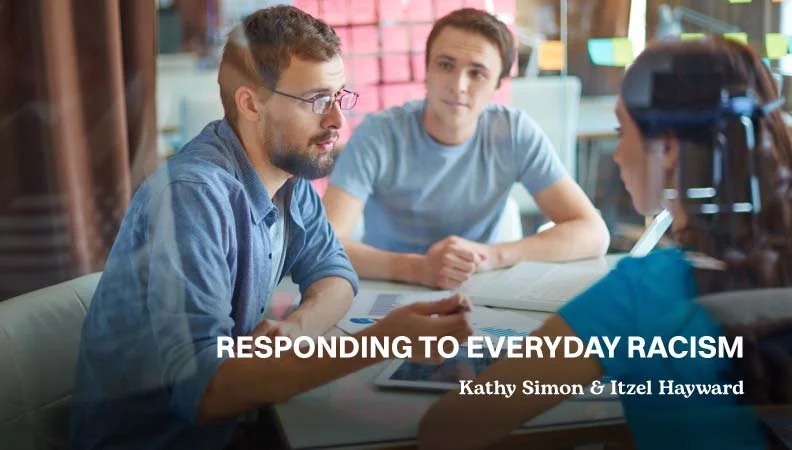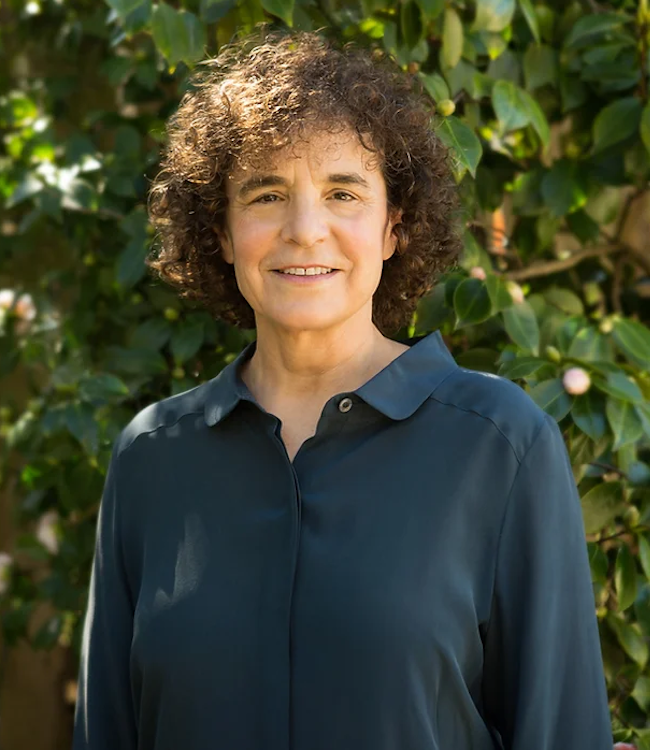Talking About Race and Racism:
Skills for Navigating Difficult Conversations
With Itzel Hayward and Kathy Simon.
Recap of key Attuned Listening concepts
(From "Responding to Everyday Racism")
Homework
Week 1: Attuned Listening
Look again at the Attuned Listening worksheet. Pick a couple of trigger statements that you didn’t work on in your small group and see if you can guess some underlying needs.
Week 2: Empowered Speaking
Between now and next week, please pay special attention to your habits of responding when people say things you don’t agree with. Do you tend to lead with listening? Persuading? Something else?
Watch video on Deep Canvassing: How We Can Reduce Prejudice with a Conversation | David Fleischer | TEDxMidAtlantic
Week 3: Mindful Inner World
Look at a comment on social media or in real life that is hard to hear and do a mindful inner world practice with it. What do I feel? What do I need? What might the other person feel and need? Notice how it feels to be asking yourself these questions.
Watch a video of powerful stories of people who have used attuned listening and empowered speaking to change hearts and minds" (under "Additional Resources" below).
Week 4: Putting It All Together
What are you taking away? How has this changed how you might engage in these kinds of conversations? Please let us know in the feedback form linked here or at the QR Code below.
Resources for further inspiration
Here are some songs that inspire us to keep doing this work.
We Shall Be Known - Thrive Choir
Mi Camocha Courage - Nefesh Band
Additional Resources
Assembled by Itzel Hayward and Kathy Simon
Powerful stories of people who have used attuned listening and empowered speaking to change hearts and minds
Many people ask us if using the approach of listening well can “work” in helping to change the opinion of someone who has a strongly held point of view that you disagree with. We have gathered a collection of video and audio stories of this type, which we find dramatic and powerful reinforcement of the idea that connecting with another person’s humanity can really make a difference. Enjoy!
Daryl Davis
Daryl Davis is an African American R&B and blues musician and activist. In his efforts to fight racism, Daryl Davis has engaged with members of the Ku Klux Klan (KKK) and has convinced a number of members to leave and denounce the KKK.
Antoinette Tuff
When Michael Hill entered Ronald E. McNair Discovery Learning Academy in Decatur, Georgia with a rifle, several hundred rounds of ammunition, and the intention to begin shooting, he encountered Antoinette Tuff. Antoinette Tuff, a front office worker at the elementary school, spoke empathically with Michael Hill for several minutes, calming him down while police arrived and eventually convincing him to surrender to the officers.
https://www.npr.org/2014/01/31/268417580/how-one-womans-faith-stopped-a-school-shooting
Julio Diaz
A young man attempted to rob Julio Diaz on the New York subway. Julio Diaz connected with the young man empathically and ended up taking him out to dinner. Listen to him tell his story:
https://www.youtube.com/watch?v=7oOpsfbiJlA
David Fleisher TED Talk
David Fleisher is the Director of the Los Angeles LGBT Center's Leadership LAB (Learn Act Build). Watch him walk viewers through a video of gay activist Virginia Millacci connecting empathically with a voter who strongly believes transgender individuals shouldn’t be permitted to use bathrooms that match their gender identity.
https://www.youtube.com/watch?v=xN6O5LTaGyg
Derek Black
Derek Black is the godson of KKK leader David Duke. Encounters with people who treated him well, despite his beliefs, gave Derek the impetus to leave the white supremist world he had grown up in and now he speaks out against it.
https://onbeing.org/programs/derek-black-and-matthew-stevenson-befriending-radical-disagreement/
Dylan Marron
In his book and podcast, both titled Conversations with People Who Hate Me, Internet content creator Dylan Marron documents his experiences of reaching out and having phone conversations with people who’ve sent him homophobic and other personal attacks via online comments and messages.
Resources for Further Learning
Books
Nonviolent Communication, A language of life, by Marshall Rosenberg.
The Compassionate Classroom: Relationship-based teaching and learning, by Sura Hart and Victoria Hodson. This is NVC very specifically for classrooms and kids. These authors also wrote The No-Fault Classroom and have a curriculum by that name.
Parenting from the Heart, by Inbal Kashtan. A very brief booklet, valuable for working with children.
Say What You Mean, A mindful approach to Nonviolent Communication, by Oren Jay Sofer.
Empathy Stories: Heart, connection, and inspiration, edited by Mary Goyer. These are very brief tales, a few pages at a time, of empathy (attuned listening!) “working.”
The Empathy Factor: Your competitive advantage for personal, team, and business success, by Marie Miyashiro. This is a really different kind of book, as you can see from the subtitle. Marie consults with big corporations, and the book is aimed at corporate folks. Could be interesting if there is someone in that world whom you want to expose to the ideas of NVC.
Puddledancer Press — publishes only NVC books.
Videos
Marshall Rosenberg. There are many, many recordings of Rosenberg. This is a 3 hour one, shot during a weekend in San Francisco in 2000: https://www.youtube.com/watch?v=4LuPCAh9FCc
You can also search for “nonviolent communication” on YouTube.
Online classes
NVC Academy (https://nvctraining.com) has a lot of current classes and archived ones, many in video format, some just in audio. For access to the archive, you need to subscribe, but a few are available for free.
Supplementary Materials
At Grok the World (http://www.groktheworld.com) you can buy feelings and needs cards and magnets
Organizations
There are a number of organizations around the country that teach NVC; we’ve listed a few of them here:
Center for Nonviolent Communication — https://www.cnvc.org. This is an international organization, where you can search for trainers by location.
NYCNVC — http://www.nycnvc.org
Work Collaboratively — https://workcollaboratively.com. (NYC)
One Big Circle - www.onebigcircle.us
Home of the NVC Educators Institute Teach for Life residential retreat
and Family H.E.A.R.T Camp - Nonviolent Communication Family Camps
BayNVC – www.baynvc.org.
Upcoming trainings
Responding to Everyday Racism
Step into your power to advocate for a more just world
Test out your new skills in a supportive environment
Stay balanced in difficult conversations
Discover your role in transforming systemic oppression
Wednesdays, March 6-27, 2024 (four sessions)
5:00-7:00 PM Pacific (California) Time • What time is it in your location?
Online via Zoom
Contact Kathy Simon and/or Itzel Hayward to stay up to date on future offerings.
Meet the Trainers
Kathy and Itzel, passionate advocates for communication across difference, offer invaluable skills for addressing racism in daily life. Learn to challenge harmful beliefs and behaviors with empathy and foster true transformation.
Itzel Hayward
After practicing law for over a decade, Itzel Hayward made the career move from lawyer to coach. Since then, Itzel has been sharing stress management techniques, collaboration skills, conflict resolution skills, and nonviolent communication skills with groups and individuals around the San Francisco Bay Area. Much of Itzel’s work is focused on anti-racism and communicating across difference and is based on the understanding that all people have the capacity for empathy and seeing each other’s full humanity. Click here to learn more.
Kathy Simon
Kathy Simon is passionate about teaching skills for communicating across difference, whether the differences arise across the kitchen table, in the classroom, the board room, or across religious, racial, and political divides. Kathy's work draws on the insights of Marshall Rosenberg’s Nonviolent Communication and incorporates her decades of experience as an educator, non-profit director, parent, and partner. She is a certified trainer with the international Center for Nonviolent Communication. Click here to learn more.




